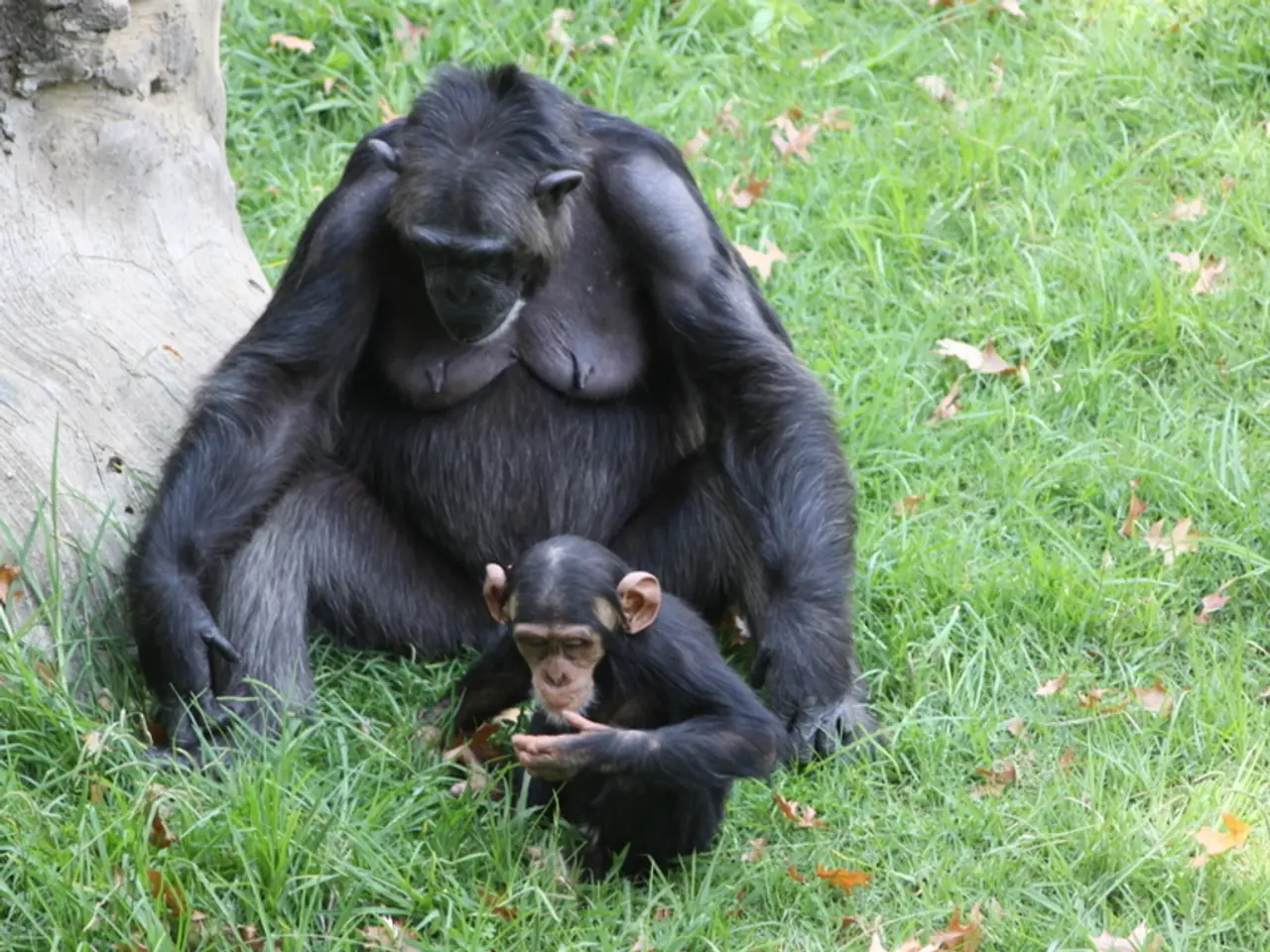Daily consumption of alcohol by chimpanzees, revealed in a new study
In a groundbreaking discovery, a recent study published in the journal Science Advances supports the 'drunken monkey theory' that humans' liking for alcohol and ability to metabolize it may stem from our primate ancestors.
Led by Aleksey Maro, the study suggests that humans may have inherited from primates a taste for alcohol and the ability to metabolize it. The research was carried out in the wilds of Africa and involved observing the alcohol consumption habits of chimpanzees.
The study indicates that chimpanzees consume physiologically relevant doses of alcohol routinely daily, equivalent to at least one alcoholic drink per day. This is roughly the amount of a pint of beer, according to the researchers.
Nathaniel Dominy, a professor at Dartmouth College, welcomed the study enthusiastically, calling it a 'tour de force.' He also stated that the study puts an end to the debate over the prevalence of ethanol in tropical fruits.
However, Dominy raised questions about the biological and behavioral consequences of chronic low-level ethanol exposure for nonhuman primates. Another unanswered question is whether chimps actively seek boozy fruit or just eat it when they find it.
The study was co-authored by US biologist Robert Dudley, the research leader of the study project on alcohol consumption in chimpanzees. Maro stated that the issue of chimpanzees ingesting alcohol will remain under study to learn more about the origins of human alcohol consumption.
Robert Dudley, Professor of Integrative Biology at the University of California, Berkeley, expressed similar sentiments, stating that the study opens up new avenues for exploring the origins of human alcohol consumption through the study of chimpanzees.
The researchers in this study did not determine whether chimps actively seek alcoholic fruit. However, the findings of the study will undoubtedly contribute significantly to our understanding of the evolution of alcohol consumption in humans.






